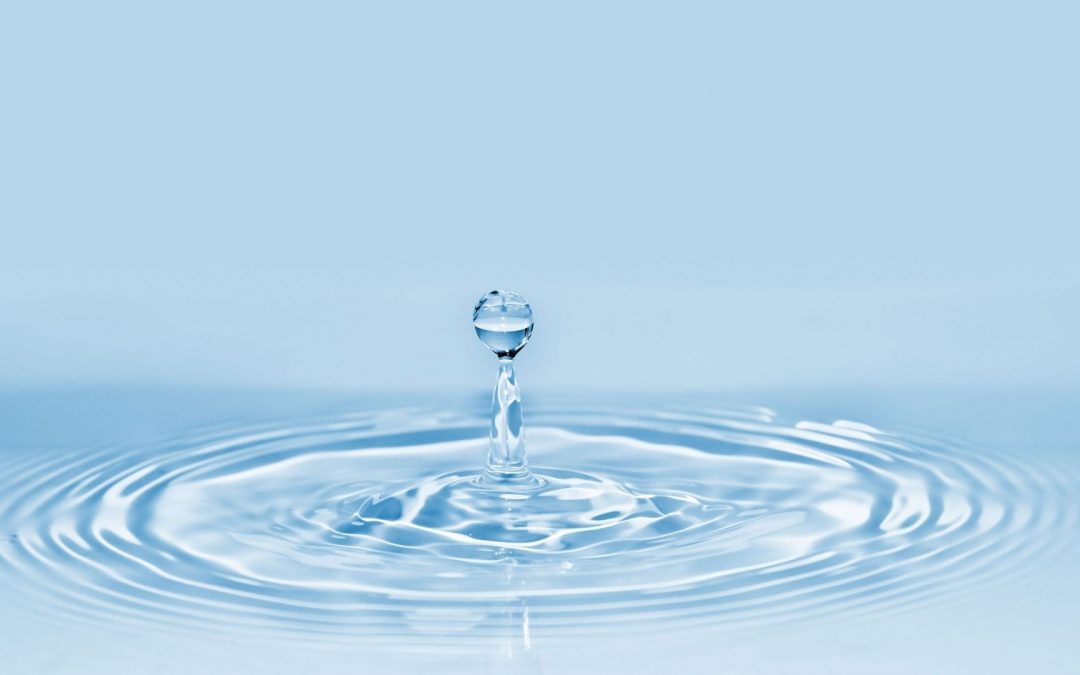CAN A PAPER STRAW CHANGE YOUR TASTE EXPERIENCE?
Have you given up ordering a McDonalds Milkshake as part of your meal? I used to love a chocolate shake but having tried drinking one through the new paper straws, all I can say is I failed and may have to resign to never having one again!
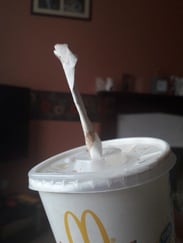
The paper straws disintegrate from the force needed to get the frozen milk to my mouth, I’ve even tried turning the straw round but by this point the straw had collapsed from the force and I still had three quarters of my milkshake left, I even asked for extra straws to try and drink my drink.
Plastic drinking straws had been identified as one of the biggest single-use plastic contributors, only overtaken by plastic drinking stirrers. I get why they have been replaced but are the alternatives to single-use plastic items truly viable?
PLASTIC WASTE
The ban on supplying plastic straws and stirrers (and plastic-stemmed cotton buds) came into force in England on 1st October 2020, a major step in the countries fight against single-use plastic waste, and helping to protect our environment and to clean up our oceans and waterways. It does not solve my milkshake dilemma but as with shopping I now carry a metal straw with me, same as my bag for life (which came into force in 2015). The question is, has the government gone far enough?
The UK generates as a country approx. 5 million tonnes of plastic waste each year, including 7.7billion “single-use” plastic bottles per year. With only 45% of those making it to be recycled, it is evident that we still have a problem with single-use plastic, as 55% of all plastic ending up in landfill, rivers, and oceans. These plastic bottles break down further to become microplastics; extremely small pieces of plastic debris in the environment resulting from the disposal and breakdown of consumer products and industrial waste, are found in our waterways across the UK. A study from 2019 by Friends of the Earth and Bangor University found that the levels of microplastics in our waterways varied greatly from 2.4 pieces per litre in Loch Lomond in Scotland, to more than 1,000 in the River Tame in Greater Manchester. (1)
According to a 2019 survey by Edelman Intelligence on the UK plastic pollution problem, 76% of survey respondents felt not enough was being done, in comparison, 12% believed that what is currently being done to alleviate the problem was sufficient. (2) Drinks cups and lids, and drink bottles make up 14.2 billion items each year and are considerable in size and weight when compared cigarette filters and cotton buds, which are the next largest to straws and stirrers.
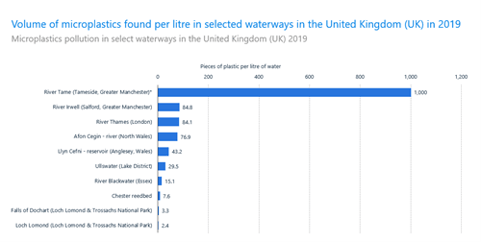
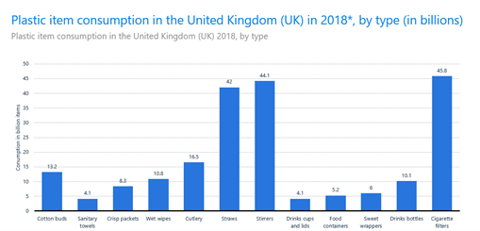
COFFEE
With our love of coffee, we need to find a more sustainable solution to the increasing waste of cups and lids from numerous coffee shops around the country. A reusable coffee cup is a great option, but with Coronavirus it has meant that they are not being accepted in coffee shops right now. The only available option is to use what is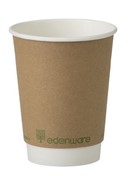 offered by the shop. Those that are offering a compostable cup is supporting the environment, correct? Compostable means it is made of organic matter and it can break down to make a nutrient rich compost. But these take years to breakdown, and until we in the UK have the facilities and technology to process them, they unfortunately they are not good for the environment and will end up on the landfill.
offered by the shop. Those that are offering a compostable cup is supporting the environment, correct? Compostable means it is made of organic matter and it can break down to make a nutrient rich compost. But these take years to breakdown, and until we in the UK have the facilities and technology to process them, they unfortunately they are not good for the environment and will end up on the landfill.
Looking to the future when you are able to use your reusable cup, where do you wash your cup between drinks? Public Health England (PHE) and Food Standards Agency both advised customers to ensure they are cleaned properly after every use and replaced, as necessary. Paul Morris, director of packaging hygiene firm AddMaster said “Consumers need to be aware that if a product is used more than once, there is a potential health risk if the drinking vessel has not been cleaned properly. This is particularly important with coffee products, where dairy and sugar are present, as this is an ideal breeding ground for potentially dangerous bacteria. If the cup is dirty hot water alone is not good enough – you need detergent too – and if it’s OK for your hands its too cool to kill bacteria. The main danger will be from the mouthpiece which will have hard to reach areas that bacteria could grow in.” (3) Examples of bacteria that can develop and grow are salmonella, E.Coli and Listeria.
The thought of washing my cup in the public toilets just isn’t something that I am sure many of us want to even consider. Best practice guidance in the future for coffee shops suggests that customers place their clean reusable cups with the lids off onto designated trays and steps back. Baristas then makes their drink and pours it into the customer cup without touching it. Given this process, they will not be cleaning it as well, the option maybe to carry multiple reusable cups if you are drinking multiple drinks throughout the day without the opportunity to clean them.
WATER
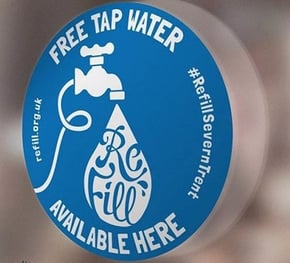 With over 30,000 places in the UK offering free tap water, according to Refill’s app why are we still buying bottled water and contributing to the single-use plastic waste. Habit is formed, I know when we had to start wearing masks, I would regularly forget it and have to do the walk of shame back to my car, over time it becomes natural; keys, wallet, phone and mask. Carrying a water bottle is not as convenient, but we can surely get into the habit of picking one up before we leave.
With over 30,000 places in the UK offering free tap water, according to Refill’s app why are we still buying bottled water and contributing to the single-use plastic waste. Habit is formed, I know when we had to start wearing masks, I would regularly forget it and have to do the walk of shame back to my car, over time it becomes natural; keys, wallet, phone and mask. Carrying a water bottle is not as convenient, but we can surely get into the habit of picking one up before we leave.
Or is it that as consumers we don’t want to drink tap water? A LUQEL survey in August 2020 ask consumers why they don’t drink water, 84% of the respondents said it was boring. BBC Horizon programme – Honest Supermarket shown on 24th November 2019, looked in more detail about bottle water vs tap water. With a single bottle of water costing 500 times more than the equivalent volume of tap water, we are still buying 3 billion litres of mineral water every year. They asked whether bottled water was safer than tap water. Bottled water still has a considerable level of bacteria in the bottle, but due to the lack of chlorine, once opened the bacteria can increase. This will also impact how many times you open and drink from the bottle, as each time the bacteria from your mouth or the air touches the bottle it will increase the levels. In this instance tap water is safer as it has been treated and has chlorine added to control the bacteria levels. Tap water still contains Microplastics and Nanoplastics, pesticides, hormones – all hidden in the clear liquid that looks safe, and the impact is still unknown to what they are doing to our bodies.
What is the answer to finding great tasting water that is safe to drink and not boring? How do we as a nation find true alternatives to single-use plastic items that have filled our lives in recent years and create a sustainable planet for the future generations? What are the alternatives that for consumers that they can trust?
LUQEL is playing a small part with our plastic free water stations and bottles and focus on waterways and ocean clean up, dispensing 100% filtered water. Discover more at www.luqel-water.com
LUQEL
The great news is the clever engineers at LUQEL have found a way to deliver pure H2O, with no added sugars, colouring or artificial sweeteners. This is through a multi-stage filtration process, and adding in compound minerals to create the great taste. You can read our Taste Journey which goes into more detail on the process.
Reassuringly some technology does work and thanks to BAV institute (an accredited contract laboratory for food, cosmetic and pharmaceutical companies) for testing our water station over a three month period to examine the microbiological colonies in the dispensed water, and confirming that no germs, E-Coli, bacteria or microplastic and nanoplastics were detected in any of the water samples. Eliminating all doubt that the clear liquid from the LUQEL Water Station is a clear liquid and safe to drink. Pure H20 doesn’t have a taste, smell or colour, so adding mineral compounds back into the water is essential, LUQEL can share in our secret to drinking great tasting pure mineralised water.

LUQEL WATER STATION
LUQEL is a pioneer in water technology, its’ mission is to radically change the way people drink water to make a lasting difference. Visionary innovations make plastic superfluous. With our perfect purification process, individual mineralisation, ‘smart’ bottles and the digitalised eco-system, our products turn tap water into a whole new level of water enjoyment, “Water as individual as you are”.
REFERENCES
- Statista, 2019 https://www.statista.com/statistics/980371/micro-plastics-in-waterways-united-kingdom/
- Edelman Intelligence, via Statista, https://www.statista.com/statistics/1124913/plastic-pollution-measures-opinions-united-kingdom-uk/
- Paul Morris, Add Master https://www.joe.co.uk/fitness-health/reusable-coffee-cups-subject-to-public-health-warning-157952

